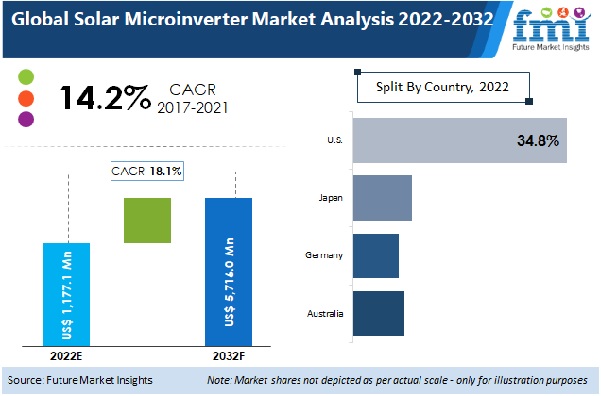Solar Microinverter Market Size Outlook (2022-2032)
[202 Pages Report] Global demand for solar microinverter is expected to at a CAGR of 18.1% from 2022 to 2032, reaching a valuation of US$ 5,716.0 Mn by 2032. The market is supported by:
Global small and medium entrants and other venture capital-funded start-ups, most notably in developing regions
The growing number of investments in technologies to meet the expansion needs
Ongoing diversification in product portfolios
Increasing demand from residential and commercial sectors
By system type, the integrated system category is set to make up over 8% of the global solar microinverter market share in 2022. Residential and commercial sectors are witnessing significant growth in emerging countries, making microinverters a crucial component of solar energy systems. In addition to this, the growing awareness about various environmental issues is surging the number of solar panel installations at global level.
Attributes | Key Statistics |
Global Solar Microinverter Market Estimated Size (2022E) | US$ 1,177.2 Mn |
Projected Market Valuation (2032F) | US$ 5,716.0 Mn |
Value-based CAGR (2022-2032) | 18.1% |
Collective Value Share: Top 5 Countries (2022) | 70.1 % |
Development of Industrial Automation in the North American Region Drives Global Growth
Significant opportunities for new sales exist in developing countries throughout the North American region. Growing use of solar photovoltaics in the residential sector of the U.S. is primarily fueled by electricity cost savings, surging demand for an alternative electricity source, and urgent need to reduce the risk of climate change. In August 2022, Enphase Energy Inc. acquired GreenCom Networks, which provides internet of things software solutions for customers in Germany. The acquisition is expected to provide installers with a full range of home energy management systems and facilitate green EV charging.
Availability of solar energy in abundance and its great potential is also driving the demand for solar energy over traditional power sources in the U.S., which is anticipated to boost sales of solar microinverters. It is estimated that the U.S. will generate roughly 34.8% of the global solar microinverter market share during the projected timeframe.
Rapid Shift towards Central Inverters in Construction Industry to Boost the Market
According to World Bank estimates, the global economy would increase by 3.2% in 2023, creating a sizable window of opportunity for the construction industry to thrive in different parts of the world. As a result of increased investment in technologies for producing renewable energy, the market for solar microinverters is anticipated to expand. In April 2022, SMA launched the Sunny Tripower X as part of its Energy Systems Home and Business. For the first time, a three-phase solar inverter combines cutting-edge solar power generation with SMA Data Manager M capabilities powered by ennexOS. The Sunny Tripower X not only monitors, manages, and controls up to five inverters in commercial and residential energy systems with outputs of up to 135 kW, but it also allows participation in the energy sector.
The ongoing development and uptake of better performing products that are easier to use and are more beneficial will also support demand. In comparison to traditional string and central inverters, micro solar inverters have a number of advantages, including high energy yield, module-level monitoring capabilities, longer life cycles, improved safety, better flexibility, simplicity, higher labor efficiency, and no single point of failure. Moreover, new solar companies are anticipated to enter the microinverter industry owing to the growing use of AC modules, and implementation of strict standards.
According to World Bank estimates, the global economy would increase by 3.2% in 2023, creating a sizable window of opportunity for the construction industry to thrive in different parts of the world. As a result of increased investment in technologies for producing renewable energy, the market for solar microinverters is anticipated to expand. Enhanced technical advantages of microinverters over other conventional products are also fueling the demand for solar microinverters.
Small and medium enterprises (SMEs) and other venture capital-funded startups in the microinverter space are being acquired by established players in the solar inverter market. Solar microinverter installation companies and module firms are expected to diversify their product portfolios and gain a competitive advantage in the market.
Moreover, new solar companies are anticipated to enter the microinverter industry as a result of the success of leading micro inverter companies, growing use of AC modules, and implementation of strict standards. The solar microinverter market is well represented by several businesses that have distinctive technology. Mergers and acquisitions are also anticipated to boost the demand for solar microinverters in the assessment period.
The market is expected to be driven by increasing demand from residential and commercial sectors owing to high energy yield, module-level monitoring abilities, and enhanced safety of microinverters based on solar power. Solar microinverters also provide better flexibility and higher labor efficiency. The solar microinverter market accounts for around 12-16% of the global solar inverter market, finds FMI.
2017-2021 Global Solar Microinverter Demand Outlook Compared to 2022-2032 Forecast
The global solar microinverters market grew at a CAGR of 14.2% between 2017 and 2021, according to historical data. Demand for solar microinverters is anticipated to reach US$ 1,177.2 Mn in the global market in 2022, says FMI.
Growing environmental consciousness and implementation of strict laws governing the use of non-renewable power generation methods to address power shortage issues are driving the demand for solar microinverters globally. A micro inverter operates on module level power electronics, in which power conversion happens at the level of each individual module in contrast to typical string/central inverters.
Residential and commercial sectors have witnessed significant growth in emerging countries. Microinverters are considered to be a crucial component of solar energy systems. Growing awareness about various environmental issues is also projected to surge the number of solar panel installations worldwide, thereby pushing sales of solar microinverters in the evaluation period. Owing to their flexible design and increased safety, the demand for stand-alone systems is expected to grow in the next decade in the solar microinverter market.
Top 3 Trends Boosting Growth in the Solar Microinverter Market
Rising Spending on Renewable Energy
People are becoming more interested in using solar panels and other alternative energy sources due to growing concerns about the depletion of fossil fuels and rising emission levels. Increasing solar panel installations will eventually spur microinverter sales as they are a crucial component of solar energy systems. China alone, according to the International Energy Agency (IEA), was in charge of 75% of the rise in yearly solar PV installations between 2019 and 2020.
According to the IEA, global energy investment is expected to expand by 8% in 2022 to reach US$ 2.4 Trillion, with the surge primarily coming from renewable energy. It is also projected that changing government regulations and increased funding in subsidy-driven solar technologies will spur the demand for solar microinverters.
Rapid Shift from Conventional String and Central Inverters
In comparison to traditional string and central inverters, micro solar inverters have a number of advantages, including high energy yield, module-level monitoring capabilities, longer life cycles, improved safety, better flexibility, simplicity, higher labor efficiency, and no single point of failure. These important advantages have recently expanded the use of microinverters in the solar industry.
Increasing Popularity of Solar PV Inverters
Rising adoption of solar panels across the residential sector will continue to push the demand for microinverters during the forecast period. With rapid transition towards renewable energy resources, robust urbanization, growing popularity of PV inverters, and presence of leading micro inverter manufacturers worldwide, solar microinverters are expected to exhibit high demand during the projection period.
Country-wise Insights
How is the U.S. Solar Microinverter Market Faring?
“Increasing Demand for Clean Electricity across the U.S. to Fuel Sales of Micro Inverter Systems”
Growing use of solar photovoltaics in the residential sector of the U.S. is primarily fueled by electricity cost savings, surging demand for an alternative electricity source, and urgent need to reduce the risk of climate change. Availability of solar energy in abundance and its great potential is also driving the demand for solar energy over traditional power sources in the U.S., which is anticipated to boost sales of solar microinverters. It is estimated that the U.S. will generate roughly 34.8% of the global solar microinverter market share during the projected timeframe.
Why is the Germany Solar Microinverter Market Showcasing High Growth?
“Rising Electrification to Boost Demand for Solar Central Inverters in Germany”
The Germany solar microinverter market is anticipated to hold a larger share of nearly 7.5% during the forecast timeframe. The market for solar microinverters in the country is anticipated to be valued at about US$ 463.0 Mn in 2032, says FMI. Increasing awareness about sustainable energy options and increased electrification across end-use sectors across the globe are likely to aid growth. In addition, rising demand for solar microinverters from the residential and commercial sectors is anticipated to accelerate the solar microinverter market in the country.
Category-wise Insights
Which is the Highly Preferred System Type in the Solar Microinverter Market?
“Standalone Solar String Inverters to Gain Traction in the Global Market”
By system type, the standalone segment is anticipated to reach a valuation of US$ 1,083.0 Mn in 2022 and is projected to expand at a CAGR of 15.8% from 2022 to 2032. Growth is attributed to various advantages of solar microinverters like low maintenance and upkeep costs. On the other hand, by 2032, the integrated segment is expected to grow at a CAGR of 31.2% in the solar microinverter market.
Which End Use Segment is Expected to Dominate the Global Solar Microinverter Market?
“Residential Sector to Boost Sales of Solar Systems with Micro Inverters”
Residential consumers are moving away from conventional inverters due to growing regulatory concerns about the safety of solar PV installations and rising preference for high-efficiency systems. These factors are driving development in the residential end use category. Increasing demand for sustainable and clean energy due to growing concerns about greenhouse gas emissions would also support market expansion.
As per FMI, the residential segment is projected to reach a valuation of around US$ 882.9 Mn in 2022 and account for about 75.0% of the global market share in the same year. During the projected period, the commercial segment, on the other hand, is anticipated to exhibit a CAGR of 17.5% in the solar microinverter market.
Competitive Landscape
Manufacturers of solar microinverters are continuously under pressure to improve their products’ reliability and efficiency as there is a higher demand for solar products that are environmentally friendly. Manufacturing businesses want to increase the availability of their solar microinverters on the market through the introduction of new products and increased collaboration activities.
In the moderately concentrated solar microinverter market, a few companies, including Enphase Energy Inc., Altenergy Power Systems Inc., SMA Solar Technology AG, ABB Ltd., SunPower Corporations, Darfon Electronics Corporation, Northern Electric and Power Co. Ltd., Sparq Systems, Chilicon Power,LLC, and iEnergy Co. Ltd control the majority of the share.
For instance,
In August 2022, Enphase Energy Inc. acquired GreenCom Networks, which provides internet of things software solutions for customers in Germany. The acquisition is expected to provide installers with a full range of home energy management systems and facilitate green EV charging.
Enphase, Altenergy Power System, and SMA Solar Technology – The Perfect Trifecta for a Bright Future
Enphase's goal is to advance solar technology to the point where it can provide all of the world's energy needs. The three commitments that have led the company from the beginning include innovation, quality, and responsibility. These remain constant as the company works toward the vision of creating a solar-powered globe.
For instance, in October 2021, a complete Enphase Energy System with IQ8 solar microinverters was made available by the company for clients in North America. IQ8 is considered to be the company’s smartest microinverter yet. It can form a microgrid during a power outage by utilizing only sunlight. It provides backup power even without the requirement of a battery.
Similarly, in June 2020, Enphase Energy collaborated with Excel Power of Australia. Excel Power built a 50 kW Enphase micro-inverter-based system for Wippells Autos, a Jaguar and Land Rover dealer in Toowoomba City, Queensland, as part of this collaboration.
Altenergy Power System (APsystems), on the other hand, stands in the second position among the top micro inverter manufacturers worldwide. For home and commercial systems, the company provides innovative, powerful solar microinverter technology. It combines efficient power inversion with user-friendly monitoring to offer dependable and sustainable energy.
For instance, in December 2020, APsystems announced that its total global shipments of microinverter devices have surpassed 1GW. In order to reach its next objective of achieving 1GW of microinverter shipments yearly, the company will continue to concentrate on strong product and market development.
Moreover, in order to achieve its goal of 1GW, it has been progressively increasing its market share and brand recognition by concentrating on providing high-quality products that would satisfy customers' expectations. The 1GW shipment equates to more than 3.5 million APsystems’ microinverters shipped globally (based on a single unit basis), which are anticipated to produce 1.24 billion kWh annually, thereby reducing greenhouse gas emissions by 910,000 tons of CO2 and providing environmental benefits comparable to 45 million trees.
Similarly, SMA Solar Technology (SMA), a leading international expert in solar and storage system technology, is establishing benchmarks for the future's decentralized and sustainable energy supply. The company’s product line includes a wide range of effective PV and battery inverters, comprehensive system solutions for PV and battery-storage systems of all power classes, sophisticated energy management systems, and charging options for electric cars & power-to-gas applications.
For instance, in April 2022, SMA launched the Sunny Tripower X as part of its Energy Systems Home and Business. For the first time, a three-phase solar inverter combines cutting-edge solar power generation with SMA Data Manager M capabilities powered by ennexOS. The Sunny Tripower X not only monitors, manages, and controls up to five inverters in commercial and residential energy systems with outputs of up to 135 kW, but it also allows participation in the energy sector.
Scope of the Report
Attribute | Details |
Estimated Market Size (2022) | US$ 1,177.2 Mn |
Projected Market Valuation (2032) | US$ 5,716.0 Mn |
Value-based CAGR (2022-2032) | 18.1% |
Forecast Period | 2022-2032 |
Historical Data Available for | 2017-2021 |
Market Analysis | Value (US$ Mn) and Volume (MW) |
Key Regions Covered | North America, Latin America, Europe, East Asia, South Asia & Pacific, Middle East & Africa |
Key Countries Covered | U.S., Canada, Brazil, Mexico, Germany, Italy, France, U.K., Spain, BENELUX, Russia, China, Japan, South Korea, India, ASEAN, Australia and New Zealand, GCC Countries, Turkey, Northern Africa, South Africa |
Key Market Segments Covered | System Type, End Use, and Region |
Key Companies Profiled |
|
Report Coverage | Market Forecast, brand share analysis, competition intelligence, DROT analysis, Market Dynamics and Challenges, Strategic Growth Initiatives |


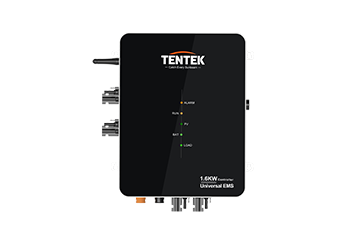
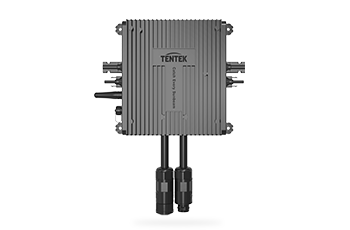
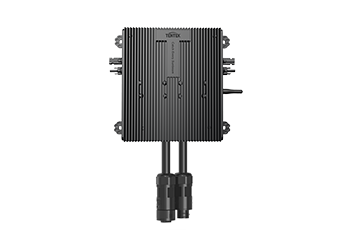
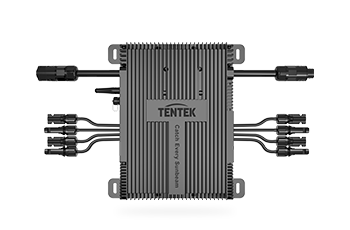
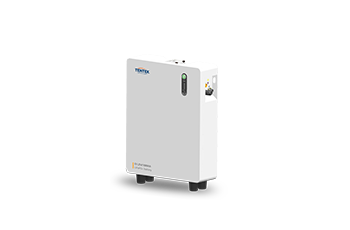
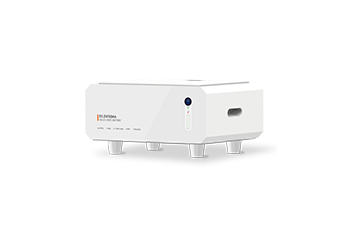
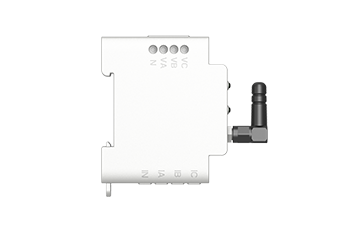
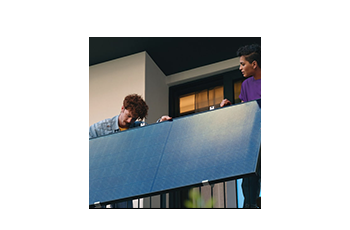
 FAQ
FAQ Download
Download Service
Service Tentek
Tentek News
News Honor
Honor Contact
Contact Message
Message Join
Join
